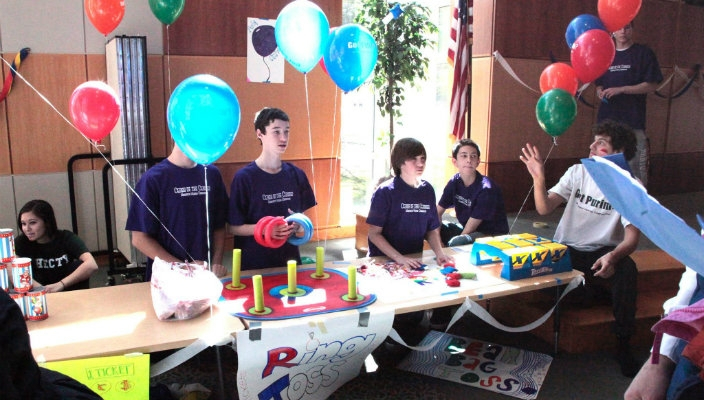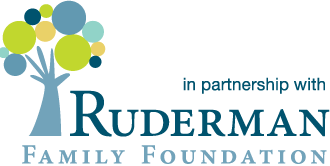5 Lessons from Camp for an Accessible, Inclusive Purim Carnival
02/14/2017
Purim is often celebrated by dressing up as the brave and honest characters from the Megillah, who stood up for their peoplehood. Purim is also a wonderful opportunity to affirm our commitment to community. In keeping with the URJ’s core value of Audacious Hospitality, Camp Harlam is proud to call itself an inclusive camp, welcoming campers of all needs and abilities who want to be here.
Here are 5 lessons from camp that can help make your synagogue’s Purim Carnival accessible to all this year:
1. Open your doors with joy!
At Camp: we know families agree that we are a more perfect community when we honor each member’s talent and contribution, as well preparing ahead to ensure every child’s success each summer.
At your Purim Carnival: make sure those in your community with disabilities know they are welcome and invited. Share with them the accommodations you are making, and ask if there are any requests to ensure they can fully participate. They are often easy to make, and people appreciate being asked.
2. Make everyone feel at home.
At Camp: “universal design” implies that what is good for one is good for all. Making accommodations for someone with a disability should be a seamless, almost imperceptible change that is beautifully done and causes no one to stand out.
At your Purim Carnival: make your activities equally accessible for all, keeping in mind the height of a young child, as well as someone in a wheelchair. Make sure your game booth volunteers know to be flexible, adjusting the odds to the player rather than making it “one size fits all.”
3. Share the routine.
At Camp: on every table in our chadar ochel (dining hall), we display the flow of the meal on visual signs. Campers who need reminders about the routine do not have to feel badly asking for help; it’s there for all to see. Similarly, we have signs hanging in the bunk outlining the wake-up routine, shower hour, and bedtime.
At your Purim Carnival: offer carnival maps with the day’s activities ahead of time. This information can be helpful for parents to talk with their child, ease anxiety, and plan their time at the event.
4. Provide options.
At Camp: we learned that sometimes just by making a few tweaks, such as summoning a greeting role for a child who can’t sit still during tefilah, we can ensure the full participation of all members of our community. This is a great philosophy for keeping our eyes open to different learning styles and social needs.
At your Purim Carnival:
Make some noise! Purim, and especially the Megillah reading, is an awesome way to celebrate kids’ need to make noise during services! The grager is the ultimate fidget toy, and kids who normally struggle to stay quiet are now encouraged to be as loud as possible! Offer a variety of fidget toys to children as they come in, including the ones that don’t make any noise at all, so that they have something to do with their hands during the quiet parts.
Quiet down: carnival games are likely going to be in rooms at a deafening volume, making some children and adults overwhelmed. The solution? Set up a “quiet room” with activities to do in the solitude of a smaller space. You can also offer noise cancelling headphones, helping kids who are looking to balance their desire to be with the larger group with their need of a quieter experience.
5. Celebrate all contributions.
At Camp: Our campers know that at Harlam, we believe in B’tzelem Elohim – that we are all created in God’s image – and we respect everyone for their similarities and their differences. We believe in the value of each member of the community, and that every camper adds to full experience.
At your Purim Carnival: When it comes to the prize table, don’t just offer prizes for winning games, have prizes for all kids who dress up! This is a wonderful way to honor each member of your community who has come to participate in the holiday. Putting kids on an equal playing field can be so valuable. In this way, children are celebrated for their participation and creativity, not their disability; in other words, what they so wonderfully can do, rather than what they cannot.
February is Jewish Disability Awareness and Inclusion Month (JDAIM), a unified initiative to raise disability awareness and support efforts to foster inclusion in Jewish communities worldwide. The Union for Reform Judaism is proud to partner with the Ruderman Family Foundation to ensure full inclusion and participation of people with disabilities and their families in every aspect of Reform Jewish life.Visit the Disabilities Inclusion Learning Center to learn more.

